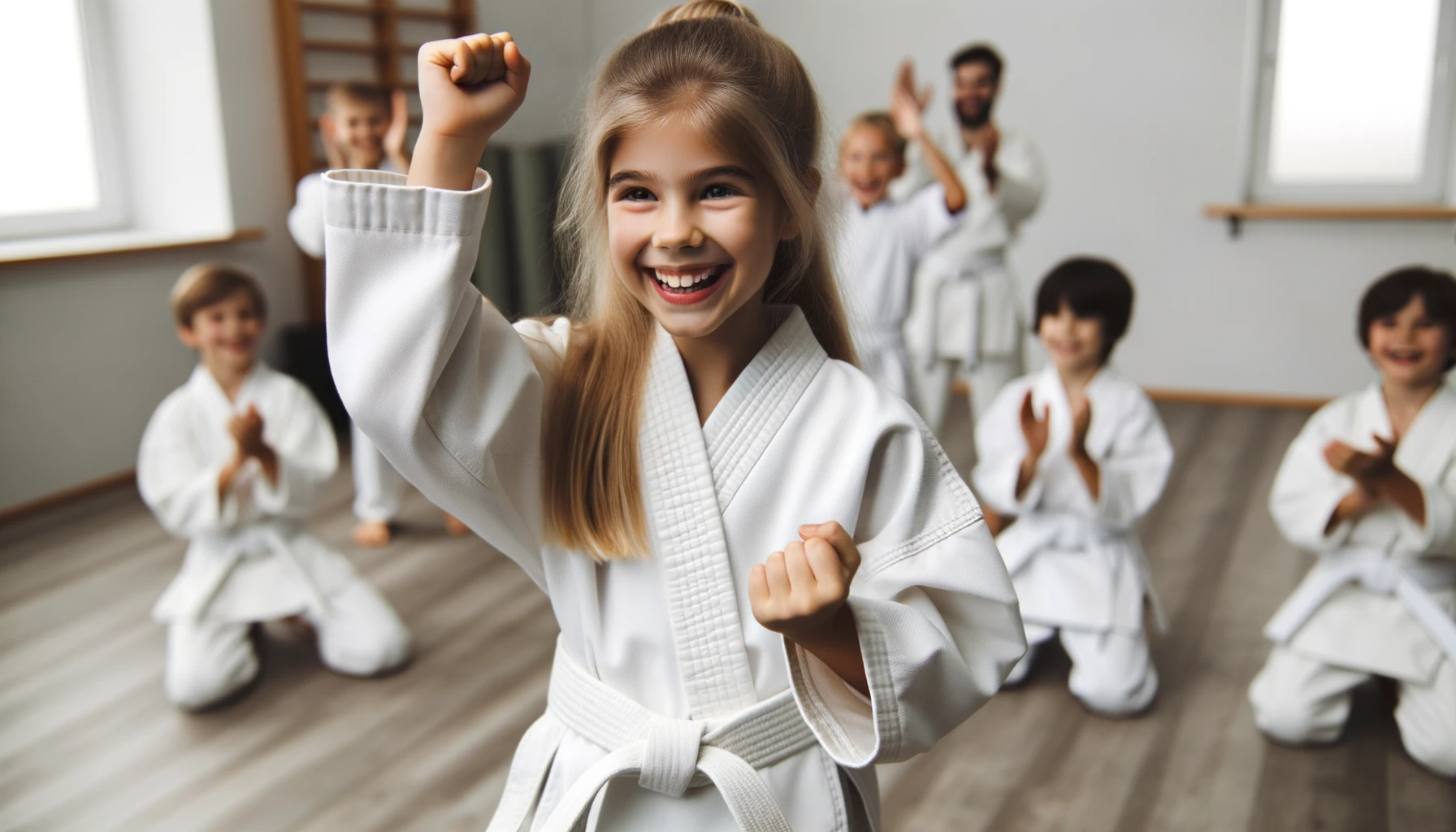Martial arts is much more than a physical discipline; it’s a practice that instills moral values in individuals, especially young children. Among these values, honesty stands out as a crucial virtue that martial arts diligently teaches. This article unfolds the interconnection between martial arts and honesty, shedding light on how enrolling your child in martial arts training can significantly contribute to their moral upbringing.
Key Takeaways:
- Understanding the intrinsic philosophy of martial arts that underlines the importance of honesty.
- The role of the belt system in nurturing integrity and honesty in young martial artists.
- Real-world scenarios demonstrating the practice of honesty in martial arts training.
- The enduring impact of learning honesty through martial arts on a child’s life and interpersonal relationships.

The Martial Arts Philosophy: A Paradigm of Honesty
Martial arts is rooted in a philosophy that transcends physical prowess, delving into moral and ethical domains. Here’s how it intertwines with the virtue of honesty:
Moral Foundations
- Martial arts propagates strong moral values among which honesty is paramount. The practice encourages students to be truthful to themselves and others, fostering a culture of integrity and trust.
Teaching by Example
- Instructors play a pivotal role by embodying honesty, thus setting a sterling example for young learners. Their transparent interactions set a precedent for open and honest communication within the dojo.
Honesty in Interactions
- The dojo (training hall) becomes a microcosm of a truthful community where interactions are based on honesty and respect.
Table: Impact of Honesty on Martial Arts Training
| Benefits of Honesty | Description |
|---|---|
| Trust Building | Honest interactions among students and instructors cultivate a trusting environment. |
| Enhanced Learning | Honesty in acknowledging mistakes accelerates learning and improvement. |
| Moral Growth | Consistent practice of honesty nurtures a strong moral character. |

The Belt System: A Journey of Self-Realization
The belt system in martial arts is not merely a hierarchy of ranks, but a journey of self-realization that emphasizes integrity and honesty.
Reflecting Personal Growth
- As students progress through different belt colors, they learn to value personal growth over superficial rankings. Their advancement is a reflection of their honesty in training and self-assessment.
Promoting Integrity
- The belt system discourages dishonest practices like cheating. Students learn to earn their progress honestly, nurturing a sense of integrity.
Table: Belt Colors and Lessons in Honesty
| Belt Color | Lesson in Honesty |
|---|---|
| White | Beginning of self-awareness and honesty in self-assessment. |
| Yellow | Recognition of personal growth and honest effort. |
| Black | Mastery of honesty in martial arts principles and interactions. |
Martial Arts Instructors: The Torchbearers of Honesty
Martial Arts instructors are the linchpins in instilling honesty among young learners. Their approach towards teaching and interacting with students significantly impacts the moral lessons the young martial artists imbibe.
Establishing Trust
- The bond between instructors and students is anchored in honesty. A transparent communication channel is indispensable for effective learning and moral growth.
Encouraging Honesty in Practice
- Instructors encourage students to be honest about their challenges, which in turn helps in devising personalized training strategies to overcome them.

Teaching Honesty at Home and in Martial Arts
Parent-Instructor Collaboration
Parents and martial arts instructors can form a powerful alliance in instilling honesty in children. Through coordinated efforts, they can reinforce the importance of being truthful and uphold a consistent message both at home and in the dojo. Here are some ways this collaboration can work:
- Open Communication: Maintaining an open line of communication between parents and instructors ensures that any issues concerning honesty can be addressed promptly.
- Reinforcement: Both at home and in the dojo, the value of honesty can be reinforced through verbal praise, recognition, and other positive reinforcement.
Table: Benefits of Parent-Instructor Collaboration
| Aspect | Benefit |
|---|---|
| Consistency | Uniform teaching of honesty across environments. |
| Reinforcement | Enhanced understanding and practice of honesty. |
| Problem-Solving | Timely identification and resolution of issues. |
Honesty in Practice: Real-life Scenarios
Martial arts training often presents real-life scenarios where honesty is tested and nurtured.
Sparring Sessions
- Acknowledging Hits: During sparring, acknowledging when hit rather than denying it fosters honesty.
- Accepting Defeat: Learning to accept defeat graciously is a part of building honesty and integrity.
Table: Honesty Lessons from Sparring
| Lesson | Description |
|---|---|
| Acknowledgment | Fosters a culture of honesty and accountability. |
| Sportsmanship | Promotes honesty even in challenging situations. |
The Long-term Benefits of Learning Honesty
Learning honesty through martial arts has a lasting impact on various facets of a child’s life.
Education
- Academic Honesty: Practicing honesty in martial arts can translate to academic honesty, deterring cheating and plagiarism.
Relationships
- Trust: Honesty forms the basis of trust in relationships, be it with friends, family, or later in professional relationships.
Table: Long-term Benefits of Learning Honesty
| Area | Benefit |
|---|---|
| Education | Promotes a culture of academic honesty |
| Relationships | Fosters trust and authenticity |
Frequently Asked Questions
Can martial arts training improve my child’s honesty?
Yes, the structured environment of martial arts training, along with the moral teachings embedded in its philosophy, significantly contributes to teaching honesty.
How do martial arts instructors teach honesty?
Instructors play a crucial role in teaching honesty by setting an example and creating a culture of trust and openness in the dojo.
